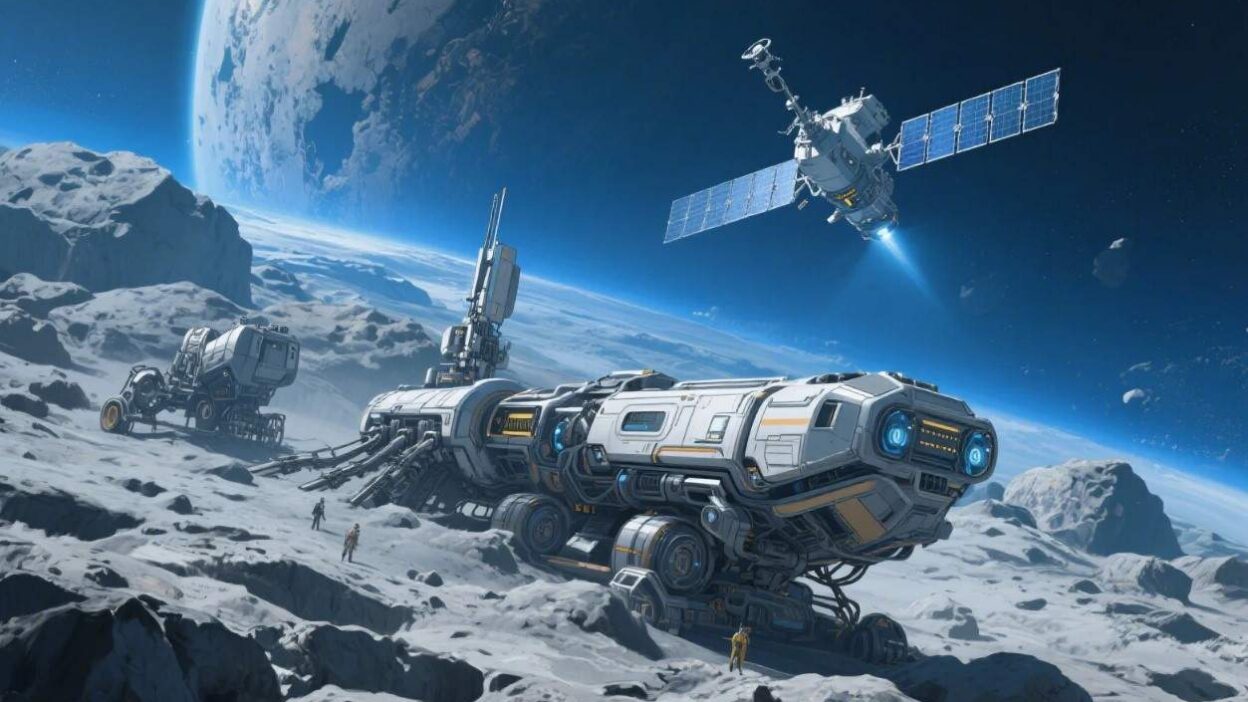The New Frontier of Resource Extraction
Humanity’s reach into space is expanding beyond exploration to exploitation. Asteroid mining—targeting metallic asteroids rich in platinum, nickel, iron, and water—promises to revolutionize industries, from manufacturing to energy, by providing access to rare resources. Yet, this nascent industry raises a critical ethical question: Who owns the resources of space?
Unlike terrestrial mining, where national laws govern ownership, space exists in a legal gray area. The 1967 Outer Space Treaty (OST) prohibits nations from claiming celestial bodies as territory but does not address private ownership of resources. This ambiguity has sparked debates among nations, corporations, and ethicists, with stakes ranging from economic dominance to global equity. This report explores the ethical, legal, and practical dimensions of asteroid mining ownership, arguing for a framework that balances innovation with justice.
The Legal Landscape: Gaps and Ambiguities
The OST, signed by 111 nations, establishes that “outer space, including the Moon and other celestial bodies, is not subject to national appropriation by claim of sovereignty.” However, it does not explicitly prohibit private entities from extracting or owning space resources. This loophole has enabled companies like Planetary Resources (now defunct) and Asteroid Mining Corporation to advocate for “space resource rights” under the guise of “utilization” rather than “appropriation.”
The 1979 Moon Agreement (not ratified by major spacefaring nations) attempted to clarify this by declaring the Moon and its resources the “common heritage of mankind,” requiring equitable sharing of benefits. But its lack of ratification leaves asteroid mining largely unregulated. Today, the legal status of space resources hinges on interpretations of the OST, with two dominant viewpoints:
- “First Come, First Served”: Proponents argue that nations/companies that invest in mining technology and infrastructure deserve exclusive rights to extracted resources, analogous to offshore oil drilling.
- “Common Heritage”: Opponents, including many developing nations, assert that space resources belong to all humanity, and their exploitation should benefit the global community, not private interests.
Stakeholders and Motivations
The debate over asteroid mining ownership involves four key stakeholders, each with distinct priorities:
1. Nation-States
Nations like the U.S., China, and Russia view asteroid mining as a strategic asset. The U.S. passed the Commercial Space Launch Competitiveness Act (2015), explicitly recognizing private companies’ rights to “possess, own, transport, use, and sell” space resources. Similarly, Luxembourg’s Space Resources Act (2017) grants companies legal title to extracted materials. For these nations, asteroid mining represents economic growth, technological leadership, and geopolitical influence.
2. Private Corporations
Companies such as Blue Origin, SpaceX, and AstroForge see asteroid mining as a path to reducing reliance on Earth’s finite resources (e.g., rare earth metals for semiconductors) and lowering launch costs (by sourcing fuel from asteroids). Their argument centers on investment and risk: private capital funds exploration and technology, justifying ownership claims.
3. International Consortia
Coalitions like the International Asteroid Mining Alliance (IAMA) propose shared ownership models, where profits are distributed equitably among participating nations and corporations. These groups aim to balance profit motives with global cooperation, advocating for regulations that prevent monopolies.
4. The Global Public
Indigenous communities, environmental groups, and advocacy organizations emphasize equity and stewardship. They warn that unchecked mining could exacerbate global inequalities (e.g., developing nations bearing the brunt of environmental harm) and damage celestial bodies with cultural or scientific value.
Ethical Arguments: Rights, Justice, and Responsibility
The ethics of asteroid mining ownership revolve around three core principles:
1. Property Rights vs. Common Good
Proponents of private ownership invoke Lockean labor theory, arguing that extracting resources (via labor and investment) confers legitimate title. Critics counter that space is a global commons, and its resources should be managed for the benefit of all, not just those with the means to exploit them. This mirrors debates over deep-sea mining, where the International Seabed Authority (ISA) mandates that profits from “common heritage” resources fund developing nations.
2. Environmental Ethics
Asteroid mining poses risks to celestial ecosystems (e.g., disrupting asteroid orbits, creating debris) and Earth’s environment (e.g., re-entering debris, resource overexploitation). Ethicists argue that ownership must include stewardship responsibilities: miners should mitigate environmental harm and prioritize sustainability over short-term profit.
3. Equity and Inclusion
Developing nations, lacking the capital to invest in asteroid mining, risk exclusion from benefits. Ethical frameworks must ensure that profits are reinvested in global public goods (e.g., climate research, poverty alleviation) and that marginalized communities have a voice in decision-making.
Case Studies: Hypothetical and Real-World Scenarios
1. The “Platinum Asteroid” Dilemma
Imagine an asteroid rich in platinum (valued at $30 billion) is discovered. A U.S. company secures a mining license under the Commercial Space Act, while a coalition of African nations argues the resource should fund climate adaptation. Who has the moral claim? This scenario highlights the tension between national/private rights and global equity.
2. The Debris Risk
A mining operation accidentally collides with a small asteroid, sending debris toward Earth. Who is liable? Current laws lack clarity, but ethical principles demand accountability: owners must ensure safe practices to protect life on Earth.
3. The Moon vs. Asteroids
The Moon’s status under the OST and Moon Agreement differs from asteroids. If a nation mines helium-3 (a fusion fuel) from the Moon, is it entitled to keep the profits? This question underscores the need for consistent global regulations.
Pathways to Ethical Asteroid Mining
To address ownership disputes and ensure equitable outcomes, stakeholders must collaborate on a framework that balances innovation with justice:
1. Strengthen International Agreements
Updating the OST to clarify resource ownership and establish a Space Resources Authority (SRA) could provide oversight. The SRA would regulate mining permits, enforce environmental standards, and distribute benefits (e.g., 10% of profits to a global fund for climate and development).
2. Adopt “Benefit-Sharing” Models
Mandating that a portion of mining profits fund public goods (e.g., scientific research, disaster relief) would align private incentives with global good. For example, Luxembourg’s Space Resources Act requires companies to invest 10% of revenue in R&D for “peaceful uses of space.”
3. Prioritize Environmental Stewardship
Implementing strict regulations (e.g., re-entry protocols, waste recycling) and requiring environmental impact assessments (EIAs) before mining operations would mitigate harm. The United Nations Committee on the Peaceful Uses of Outer Space (COPUOS) could develop EIAs standards.
4. Ensure Inclusivity
Creating a Global Space Stakeholder Forum with representation from developing nations, Indigenous groups, and civil society would ensure marginalized voices shape policy. This forum could advise on equitable resource distribution and ethical guidelines.
Owning the Stars, but Sharing the Responsibility
Asteroid mining represents a historic opportunity to secure resources for future generations, but it also risks perpetuating inequality and environmental harm. The question of “who owns space resources” is not just legal—it is ethical. By adopting frameworks that prioritize global equity, environmental stewardship, and shared responsibility, humanity can harness asteroid resources as a force for unity, not division.
As we venture into the cosmos, we must remember that the stars belong to no one—and everyone.



